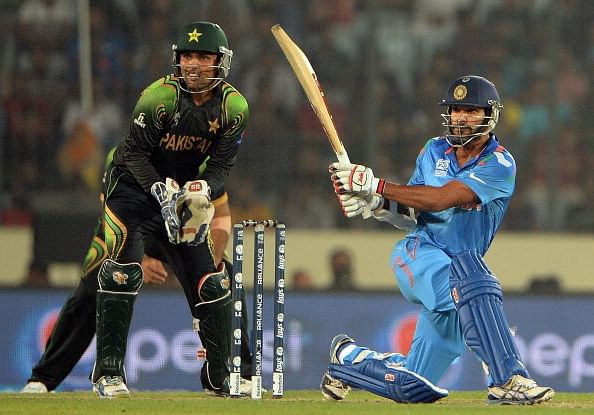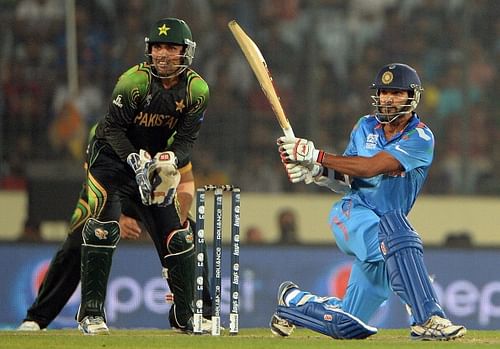
Pakistan set to benefit financially from bilateral series against India

The Pakistan Cricket Board (PCB) has been incredibly keen on resuming bilateral ties with India, and the reason for their keenness has become apparent. Najam Sethi, PCB’s chairman, has said that the PCB is likely to earn an income of around USD 450 million, if the bilateral series agreement with the Board of Control for Cricket in India (BCCI) goes ahead as planned.
The PCB and the BCCI have signed an agreement according to which they are scheduled to be playing six series in the period 2015 to 2023, out of which 4 are to be played either in Pakistan or at a neutral venues. The lucrative agreement between the two boards wouldn’t have been possible if the PCB had opposed the appointment of N Srinivasan as the Chairman of the new look International Cricket Council (ICC).
The changes in the ICC, which were approved at the annual conference of the ICC in Melbourne last week, were not favoured by the PCB in the beginning, but according to Sethi, Pakistan had no option but to subsequently be in favour of the drastic changes.
“No international team has played in Pakistan since 2009 and that is a major problem for us and we need funds that is why this agreement is so important for us,” he said. “If Pakistan had not approved the radical changes in the ICC set up, the PCB could have gone bankrupt in two years time and Pakistan would have stood isolated in international cricket,” Sethi said.
Sethi was extremely pleased with the way the annual ICC meeting had panned out, with the PCB set to financially gain the most after the big 3 of India, England and Australia. “It also means that after India, England and Australia we will get the highest share of the ICC earnings which has increased significantly to around USD 150 million from roughly USD 60 million,” he added.
Regarding reducing the 5-year ban on Mohammad Amir, the PCB chairman is determined not to give up and said that he will take up the matter with the ICC at a later time.
“We will move the application in October when the new set of anti-corruption code is approved by the ICC committee,” he stated.